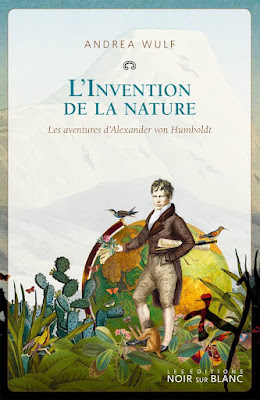
Introduction:
"The Invention of Nature: Alexander von Humboldt's New World" by Andrea Wulf is a thought-provoking and meticulously researched book that delves into the extraordinary life and achievements of Alexander von Humboldt, an unsung hero of science and exploration. In this detailed summary, we will explore the key themes and highlights from Wulf's remarkable work.
1. Biographical Overview:
Wulf begins by presenting a comprehensive biography of Alexander von Humboldt, a polymathic German scientist who lived from 1769 to 1859. The reader is introduced to Humboldt's upbringing, education, and the formative experiences that shaped his worldview. From his early fascination with nature to his encounters with influential figures such as Johann Wolfgang von Goethe, Humboldt's life unfolds in a captivating narrative.
2. Visionary Scientific Exploration:
At the heart of the book lies Humboldt's insatiable curiosity and his revolutionary approach to scientific exploration. Wulf highlights Humboldt's groundbreaking expeditions to Latin America, where he meticulously documented and measured the natural world, conducting experiments and collecting specimens. Humboldt's integrative approach, which combined multiple disciplines such as botany, geology, and climatology, laid the foundation for modern scientific exploration.
3. Understanding Nature as a Web of Connections:
A central theme in "The Invention of Nature" is Humboldt's concept of nature as an interconnected whole. Wulf explores how Humboldt's observations led him to develop the idea of nature as a complex web of relationships, where everything from climate to vegetation to human societies is interconnected. This holistic perspective challenged prevailing reductionist views of nature and laid the groundwork for the modern ecological understanding of ecosystems.
4. Influence on Science and Literature:
Wulf explores the profound impact of Humboldt's ideas on the scientific and literary communities of his time. She highlights how his works influenced renowned scientists, including Charles Darwin and Henry David Thoreau. Furthermore, she reveals how Humboldt's writings on the unity of nature inspired poets such as Walt Whitman and Johann Wolfgang von Goethe, who saw in Humboldt's ideas a source of profound inspiration and enlightenment.
5. Legacy and Relevance Today:
In the final chapters, Wulf reflects on Humboldt's lasting legacy and his relevance in the modern world. She examines how his ideas about environmental conservation, climate change, and the interconnectedness of nature remain as urgent and significant as ever. Humboldt's vision of the natural world as a fragile and interconnected system serves as a timely reminder of the need for sustainable practices and a deeper understanding of our planet.
Conclusion:
"The Invention of Nature: Alexander von Humboldt's New World" by Andrea Wulf is a captivating and enlightening exploration of the life and achievements of Alexander von Humboldt. Through Wulf's vivid storytelling and meticulous research, readers are transported into the world of this visionary scientist, whose holistic approach to nature continues to inspire and resonate in our contemporary era. This book is a must-read for anyone interested in the intersection of science, exploration, and environmentalism.
